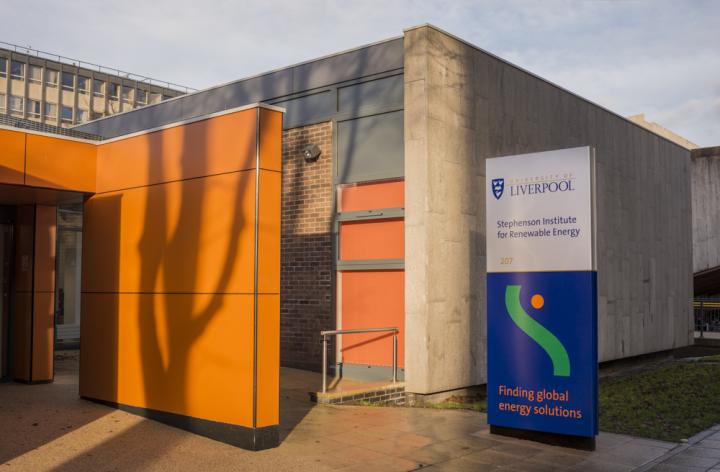
Credit: University of Liverpool
Researchers at the University Of Liverpool, in collaboration with NUI Galway and TU Berlin, have identified the key technological and scientific challenges of producing hydrogen through seawater electrolysis.
In an article published in Nature Energy, researchers assessed the various issues hindering the development of electrolyser technologies capable of carrying out direct water electrolysis using low grade water, such as seawater, as opposed to ultrapure water.
Generating hydrogen using saline water electrolysis provides an attractive route towards energy sustainability. Hydrogen is a clean and storable fuel which provides a viable fuel option for transport amongst other uses, and would be highly beneficial for coastal, rural and offshore installations.
Researchers undertook a review of recent developments in the field of saline water electrolysis and examined the challenges in the design of electrolysers.
They found there was an urgent need for new catalysts and electrode materials that can overcome the competition between chlorine chemistry and water oxidation in seawater.
Whilst some progress has been made towards this goal in recent years, long-term stability and selectivity has not been achieved.
They also identified a real need for standardisation of testing conditions to ensure that meaningful comparisons between those materials discovered can be made.
Professor Alex Cowan from the University of Liverpool’s Stephenson Institute for Renewable Energy, said: “This paper, which is an important part of the SEAFUEL project, identifies the key issues and critical barriers hindering the development of seawater electrolysis for hydrogen production.
“There is a strong need for further research programmes, such as those being delivered in the labs at Liverpool, Galway and Berlin, to overcome these challenges
“It is clear that an urgent need exists for new advanced electrode materials and catalysts and at Liverpool we have exciting research to directly address this issue which is beginning to deliver chloride tolerant catalysts.”
The research at Liverpool and Galway was funded by the SEAFUEL (Sustainable integration of renewable fuels in local transportation) project which aims to demonstrate the feasibility of powering local transportation using fuels produced by renewable energy and seawater, with no net carbon footprint.
###
Funded by the European Regional Development Fund (ERDF) programme, the SEAFUEL project includes: technical innovation by a demonstration electrolyser and H2 refueler; a framework for policy implementation; and a sustainability analysis of production, distribution and usage of hydrogen as an alternative fuel in remote Atlantic regions. Further information on SEAFUEL can be found here.
The University of Liverpool’s Stephenson Institute for Renewable Energy (SIRE) is a specialist energy materials research institute, focusing on the physics and chemistry that will transform the future of energy generation, storage, transmission and energy efficiency. Further information on SIRE can be found here.
The article `Electrolysis of low-grade and saline surface water’ (doi: 10.1038/s41560-020-0550-8) is published in Nature Energy
Media Contact
Sarah Stamper
[email protected]
01-517-943-044
Related Journal Article
http://dx.




